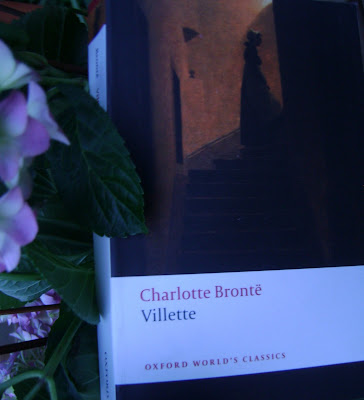
... it's arrived! My local independent bookshop has managed to get a copy of L M Montgomery's adult novel The Blue Castle. I've only been waiting 5 years! I first heard about this novel on the chicklit forums where it has quite a following. I'm going to take it to Brighton with me next week and I hope to read it on the beach.
Nightingale Wood is a sweet fairy tale about thwarted love with a cast of female lead characters, Viola, named by her Shakespearean father, Hetty, bookish and rebellious, Madge whose whole life revolves around her dog and Tina, my favourite, who married her father's chauffeur. Set in the late 1930's there are lots of references to Lyons Corner House and Woolworths but Gibbons never lets us forget the horrors of wartime England and the rise of Communism.


